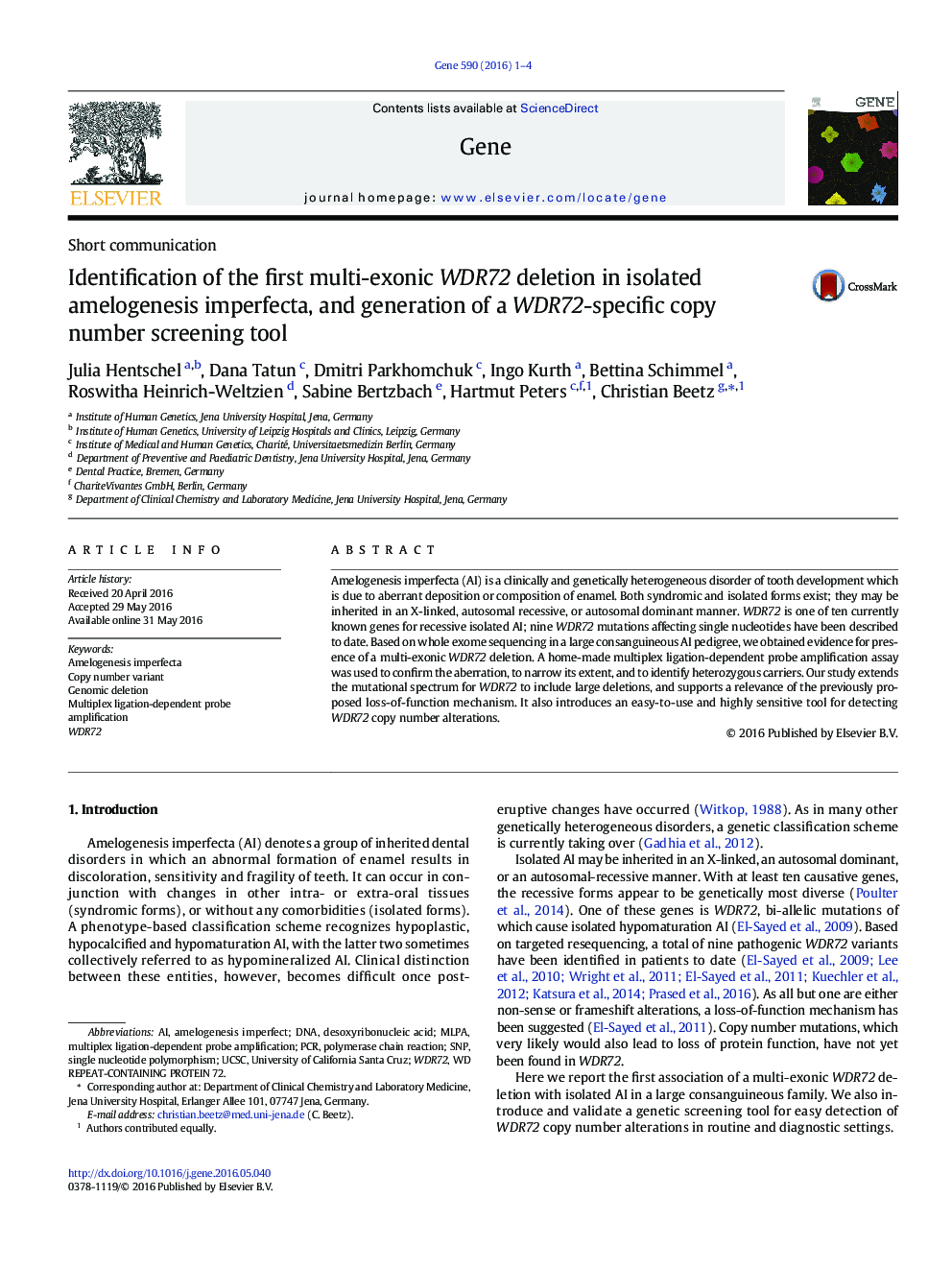| Article ID | Journal | Published Year | Pages | File Type |
|---|---|---|---|---|
| 2814886 | Gene | 2016 | 4 Pages |
•A large family with recessively inherited amylogenesis imperfecta was investigated.•Three patients are clinically described in detail.•The first multi-exonic deletion in WDR72 was identified as the causative mutation.•A WDR72-specific multiplex ligation-dependent probe amplification kit was developed.•This tool facilitates the screening for deletions and duplications in WDR72.
Amelogenesis imperfecta (AI) is a clinically and genetically heterogeneous disorder of tooth development which is due to aberrant deposition or composition of enamel. Both syndromic and isolated forms exist; they may be inherited in an X-linked, autosomal recessive, or autosomal dominant manner. WDR72 is one of ten currently known genes for recessive isolated AI; nine WDR72 mutations affecting single nucleotides have been described to date. Based on whole exome sequencing in a large consanguineous AI pedigree, we obtained evidence for presence of a multi-exonic WDR72 deletion. A home-made multiplex ligation-dependent probe amplification assay was used to confirm the aberration, to narrow its extent, and to identify heterozygous carriers. Our study extends the mutational spectrum for WDR72 to include large deletions, and supports a relevance of the previously proposed loss-of-function mechanism. It also introduces an easy-to-use and highly sensitive tool for detecting WDR72 copy number alterations.
